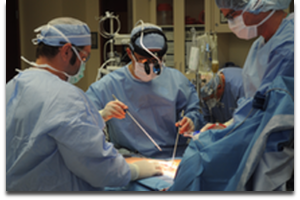Understanding the Advantages and Disadvantages of Minimally Invasive Surgery
 The Minimally Invasive and Bloodless Heart Surgery Program of Sioux City, Iowa is a facility that always aspires to improve and refine its techniques for delivering the least painful procedures possible for treating multiple medical needs. Due to our continual evolution in the field, our professional team includes prominent leaders in the industry who work in conjunction with one another for their patients. This ensures that they maximize the potential of their minimally invasive surgery (MIS) efforts. As in most medical niches, there are both advantages and disadvantages of minimally invasive surgery, and it’s important to know about them prior to any procedure.
The Minimally Invasive and Bloodless Heart Surgery Program of Sioux City, Iowa is a facility that always aspires to improve and refine its techniques for delivering the least painful procedures possible for treating multiple medical needs. Due to our continual evolution in the field, our professional team includes prominent leaders in the industry who work in conjunction with one another for their patients. This ensures that they maximize the potential of their minimally invasive surgery (MIS) efforts. As in most medical niches, there are both advantages and disadvantages of minimally invasive surgery, and it’s important to know about them prior to any procedure.
Advantages of Minimally Invasive Surgery
Minimally invasive surgery refers to techniques that involve small operation sites. As opposed to large incisions, you will only experience small cuts with MIS. This means that there is minimal trauma to surrounding tissues, muscles, and nerves, as well as your organs. Smaller incisions also mean less bleeding during a procedure and less post-operative scarring. Another benefit of MIS is a reduced need for narcotics due to little or no pain during or after the procedure. Moreover, your hospital stay will be cut by more than half. Finally, minimally invasive surgery is less taxing on your immune system.
Overview of MIS Advantages Over Invasive Procedures:
- Smaller incisions
- Less trauma to tissues, nerves, organs, and muscles
- Minimal bleeding
- Reduced scarring
- Less need for narcotics
- Shorter hospital stays
- Less stress on the immune system
Disadvantages of Minimally Invasive Surgery
Although the pros of minimally invasive surgery outweigh the cons, it’s still important to know the disadvantages of MIS. Because minimally invasive surgery requires that surgeons have highly specialized training and need to use costly specialized, high-end equipment, MIS itself can be quite expensive. In addition, certain procedures may take longer, especially the most recent ones to be adopted. However, health insurance can greatly offset these costs.
Overview of MIS Disadvantages:
- Minimally invasive surgery requires specialized high-end medical equipment.
- Surgeons need specialized training.
- The equipment used with MIS is more expensive.
- There are various procedures, especially the most recent surgeries, that may take longer.
At the Minimally Invasive and Bloodless Heart Surgery Program of Sioux City, Iowa, our specialists are seamlessly knowledgeable about the most advanced MIS procedures. Each member of our staff receives specialty training, so you can rest easy knowing that you are in the most capable hands. If you’re in need of surgery and would like to determine if you’re a good candidate for minimally invasive surgery in Sioux City, Iowa, contact Dr. Giovanni Ciuffo, Director of the program, and his team to weigh the pros and cons of MIS and to learn how it might be the right treatment for you.

